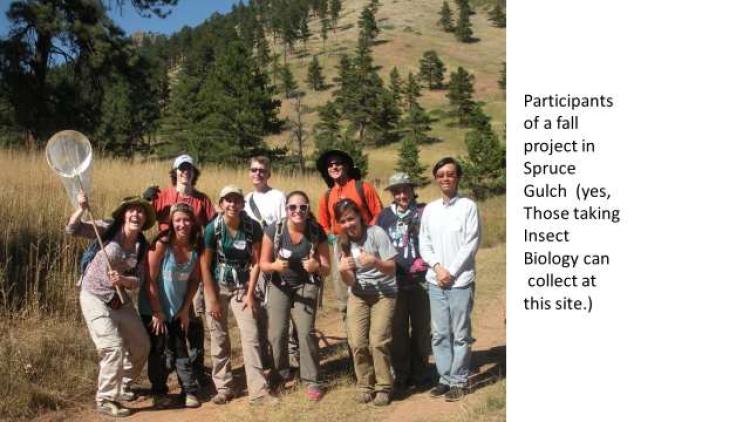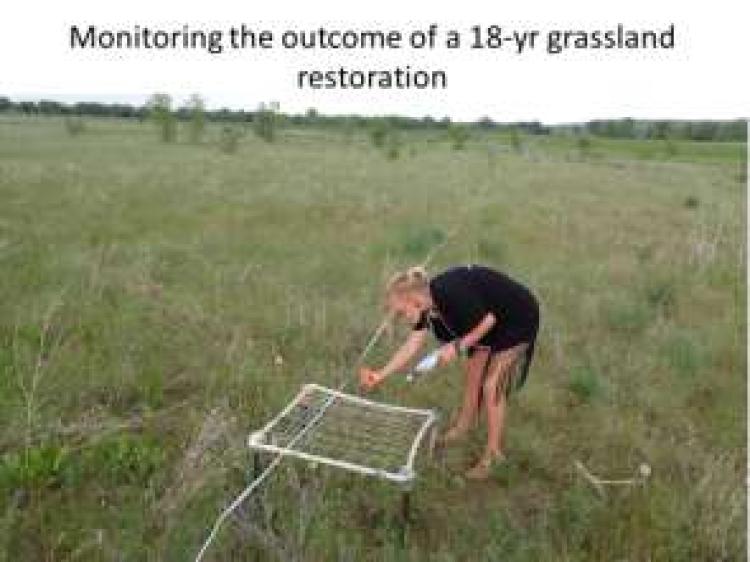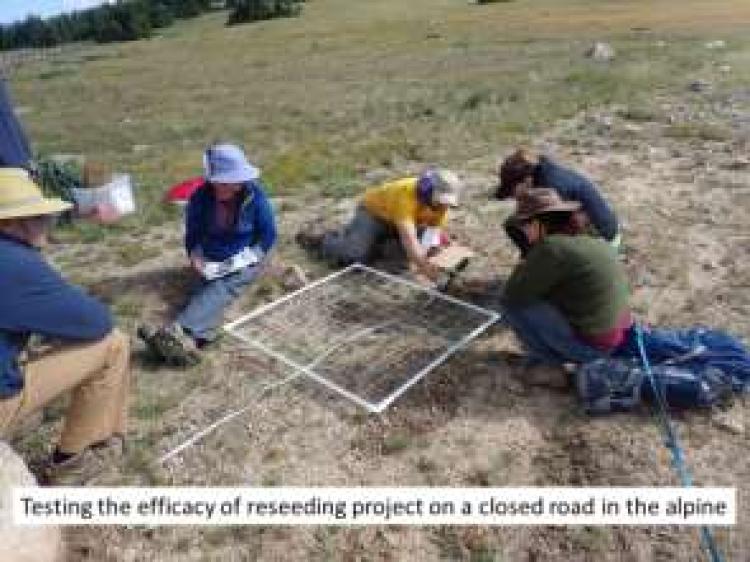Student Association for Society for Ecological Restoration
Experimental Learning in Restoration Ecology
A SPECIAL OPPORTUNITY FOR ALL UNDERGRADUATES AND GRADUATES
Want to obtain hands-on knowledge in order to restore a prairie or a riparian zone? Want to restore old road damage and build new trails that cause reduced environmental impacts? Want to monitor restoration efforts?

At a higher level, perhaps you want to learn how to design, direct and manage restoration projects? You can obtain a leadership credential that may contribute to employment opportunities. Both of those goals are possible by participating in the restoration programs offered by several non-profit groups on the Colorado Front Range.
Here at CU, we’ve gone this one better.


THE STUDENT ASSOCIATION FOR THE SOCIETY OF ECOLOGICAL RESTORATION (SER-CU) can connect you to these sources. These groups offer a) volunteer opportunities and b) training in restoration leadership roles.
*Volunteer activities are available both fall of 2018 and late spring of 2019, so all undergraduates have an opportunity to work on real restoration activities. Training programs are available, but these need to be followed with actual hands-on project work to gain real field experience. Training routinely is in winter and leadership roles in projects are undertaken the following year. Hence, students who will be in the Front Range for multiple years are more likely to benefit from training programs.
First target project: There are a bunch! See options at:
https://www.wlrv.net/index.php?section=events&action=list&type=792&filter_date_type=after&filter_date_1=yesterday
The volunteer, non-profit organizations we work with have info at:
http://www.wlrv.org/
http://www.voc.org/
http://www.synergy3.org/
The above programs offer training, and it pays to sign up for projects or trainings early. For additional information or anything else, contact timothy.seastedt@colorado.edu Details of activities of the parent program, Society for Ecological Restoration, are at:
http://www.ser.org/home


